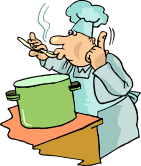- Quantity
- Quantity II
- Eat, Food
- Taste, Touch, Smell
- Hearing, Sight
- Gerunds
- Present Perfect
- Present Perfect II
- Passive
- Interest, Bore, Surprise
- Courage, Fear
- Ego, Pride, Shame
- Groups, Meet, Greet
- Command, Advise
- Communication
- Communication II
- Clothes / Clothing
- Money, Buy, Sell
- Rent, Own
- Machine, Appliance
- Weather
créditos
